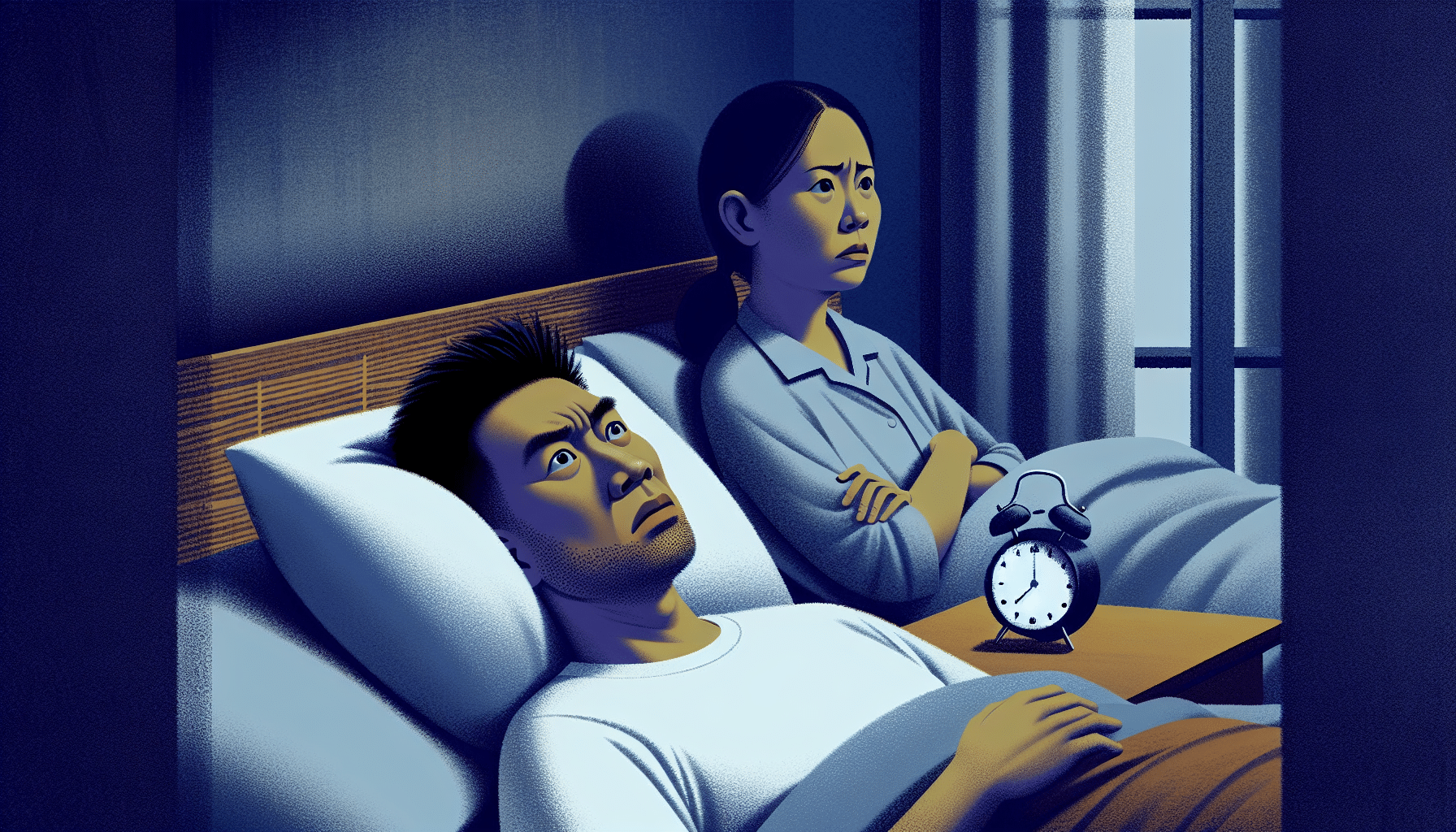Impact of Workplace Bullying on Insomnia
Short-term Consequences of Workplace Bullying on Sleep Indicators
Workplace bullying has been increasingly recognized as a significant stressor that can lead to various negative health outcomes, including sleep disturbances. Recent research conducted by the University of East Anglia in the UK, in collaboration with Complutense University of Madrid and Seville University in Spain, has highlighted the short-term consequences of workplace bullying on sleep indicators. These indicators include sleep severity, which refers to waking up too early, sleep impact, which involves interference with daily life, and sleep satisfaction, which is the overall contentment with one’s sleep quality.
The study, published in the Journal of Interpersonal Violence, aimed to explore how bullying at work affects insomnia and to examine the mediating role of “anger rumination.” Anger rumination involves repetitive and persistent thinking about distressing events, such as bullying. The researchers found that the relationship between workplace bullying and sleep disturbances intensifies over time. This is particularly evident in difficulties with sleep onset, staying asleep, and early morning awakenings. The study suggests that these sleep issues are exacerbated by the work-related anger experienced by the employee, which leads to constant rumination.
The Role of Anger Rumination in Exacerbating Insomnia Symptoms
Anger rumination has been identified as a critical factor in exacerbating insomnia symptoms resulting from workplace bullying. When individuals experience bullying, they may engage in rumination as a way to mentally process and cope with the negative events. However, this repeated thinking about distressing events can lead to the development of sleep problems, such as difficulties in falling asleep, staying asleep, and overall dissatisfaction with sleep.
Rumination is considered a maladaptive coping strategy in dealing with workplace bullying. While it may initially seem like a way to resolve issues or understand the situation, it can actually lead to more harm in the long run. The research highlights that the effects of workplace bullying are time-dependent and accumulative, impacting not only the individual but also extending beyond the work setting to affect the partner’s sleep as well.
Insomnia Symptoms and Their Contagious Nature
How Insomnia Symptoms Can Be “Contagious” Between Employees and Their Partners
The study also uncovered evidence that insomnia symptoms can be “contagious” between employees and their partners. This means that the sleep issues, such as sleep severity and sleep impact, experienced by one person can influence the other. This finding underscores the interconnectedness of sleep health within relationships. When one partner experiences sleep disturbances, it can lead to similar issues in the other partner, highlighting the shared nature of sleep health in intimate relationships.
The research conducted two studies to explore this phenomenon further. In the first study, 147 employees were followed over five days, and in the second study, 139 couples were observed over two months. Participants reported their exposure to workplace bullying, work-related anger rumination, and various indicators of insomnia. The results showed that bullying indirectly affected sleep severity through rumination, and in couples, it also impacted sleep satisfaction and sleep impact.
The Interconnectedness of Sleep Health in Relationships and Its Implications for Insomnia
The interconnectedness of sleep health in relationships has significant implications for understanding and addressing insomnia. The study found that partners influence each other’s sleep severity and sleep impact. This is not surprising, as one individual’s awakening could cause the other to wake up as well. Consequently, both partners may feel that a lack of sleep interferes with their daily lives. However, satisfaction with sleep appears to be less susceptible to this contagion, possibly because it involves more subjective elements.
These findings suggest that interventions aimed at mitigating insomnia should consider the relational context. Addressing workplace bullying and its impact on sleep requires a comprehensive approach that includes both organizational and individual-level interventions. Organizational interventions should focus on reducing stressors and fostering a healthy work culture, while individual interventions should aim to develop skills for effectively dealing with stressors. Additionally, couple-oriented prevention programs could provide coping strategies to both partners, reducing rumination levels and, in turn, alleviating insomnia.
Role of Rumination in Insomnia Development
Rumination as a Maladaptive Coping Strategy Leading to Insomnia
Rumination, particularly anger rumination, is a significant factor in the development of insomnia among individuals experiencing workplace bullying. This maladaptive coping strategy involves the repetitive and persistent focus on distressing events, which can exacerbate stress and anxiety levels. Instead of providing clarity or resolution, rumination often traps individuals in a cycle of negative thinking, making it difficult to disengage from the stressor. This mental preoccupation can lead to difficulties in falling asleep and staying asleep, as the mind remains active and alert, unable to transition into a restful state. The constant replaying of negative experiences can also contribute to a heightened sense of vigilance, further disrupting sleep patterns.
The Indirect Effect of Workplace Bullying on Sleep Severity Through Rumination
The indirect pathway through which workplace bullying affects sleep severity is primarily mediated by rumination. When employees face bullying, the emotional turmoil and unresolved anger can lead to increased rumination, which in turn impacts sleep quality. This indirect effect highlights the importance of addressing cognitive processes in managing insomnia. By understanding how rumination serves as a bridge between workplace stressors and sleep disturbances, interventions can be better tailored to target these cognitive patterns. Reducing rumination can help mitigate the severity of sleep issues, allowing individuals to break free from the cycle of insomnia induced by workplace bullying.
Interventions to Mitigate Insomnia from Workplace Bullying
Organizational Interventions to Reduce Stressors and Promote a Healthy Work Culture
To effectively combat insomnia resulting from workplace bullying, organizations must take proactive steps to create a supportive and healthy work environment. This involves implementing policies that discourage bullying and promote respect and inclusivity. Regular training sessions on conflict resolution and stress management can equip employees with the tools they need to handle workplace challenges constructively. Additionally, fostering open communication channels where employees feel safe to report bullying incidents without fear of retaliation is crucial. By addressing the root causes of workplace stressors, organizations can significantly reduce the incidence of bullying and its subsequent impact on sleep health.
Individual and Couple-Oriented Prevention Programs to Develop Coping Strategies
On an individual level, interventions should focus on equipping employees with effective coping strategies to manage stress and reduce rumination. Cognitive-behavioral therapy (CBT) techniques can be particularly beneficial in helping individuals reframe negative thoughts and develop healthier thought patterns. Mindfulness practices, such as meditation and deep-breathing exercises, can also aid in reducing stress and promoting relaxation, making it easier to achieve restful sleep.
Couple-oriented prevention programs can further enhance these efforts by addressing the interconnected nature of sleep health in relationships. By providing both partners with tools to manage stress and reduce rumination, these programs can help alleviate the “contagious” nature of insomnia. Encouraging open communication and mutual support within the relationship can foster a more harmonious environment conducive to better sleep for both partners. For more insights and strategies on managing insomnia, you can explore our Insomnia Blog. Additionally, our Sleep Sound Playlists offer soothing sounds to help create a peaceful sleep environment.
Sources:https://www.sciencedaily.com/releases/2025/02/250221125811.htm



